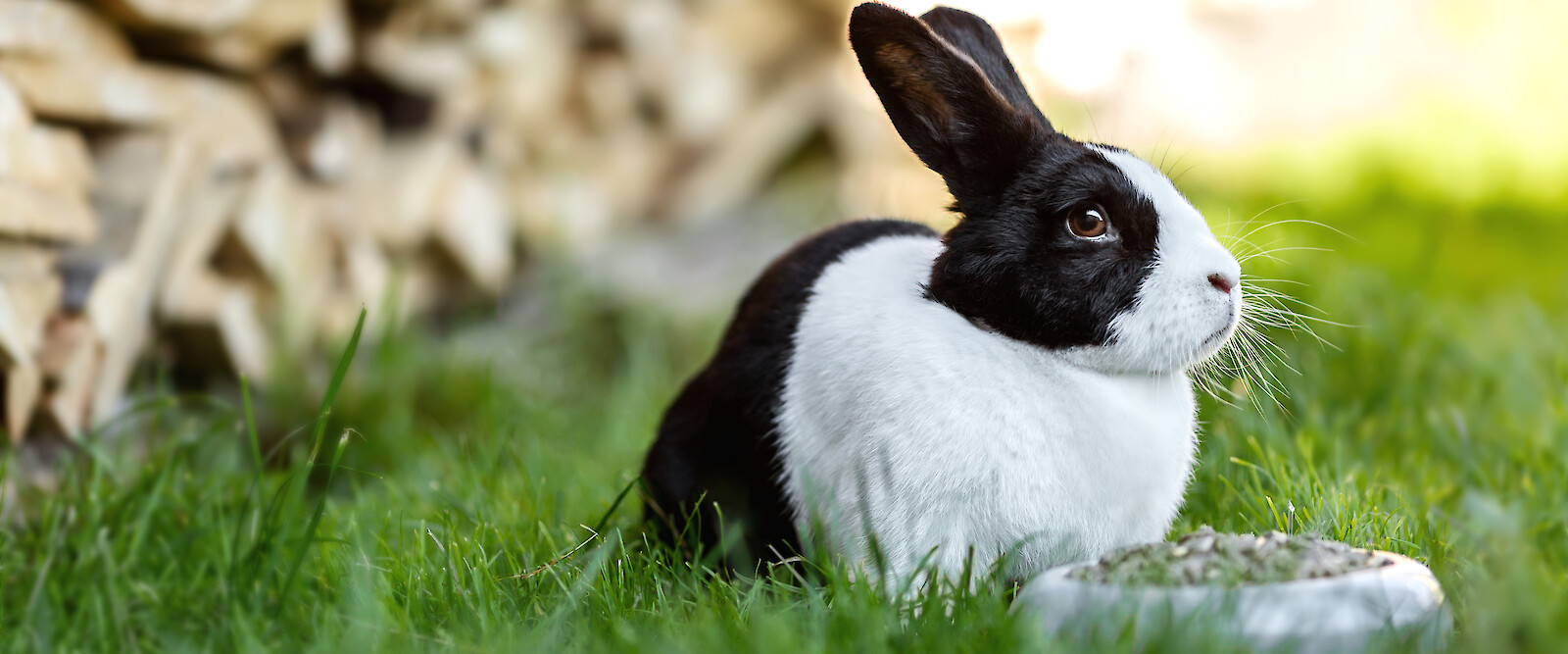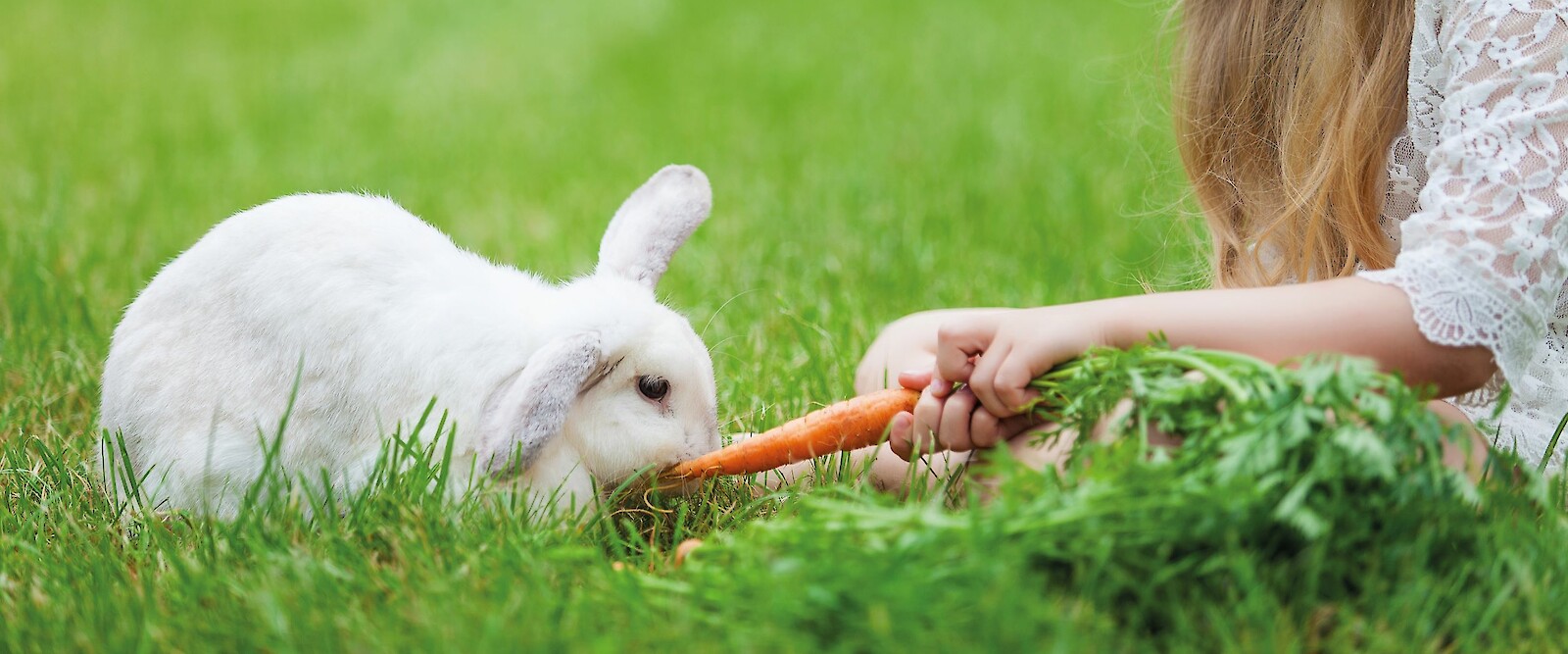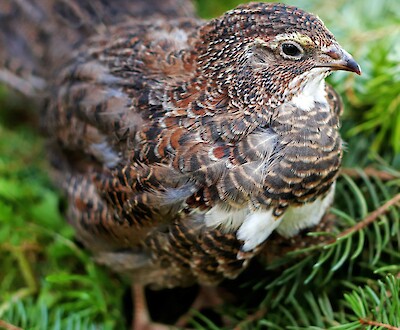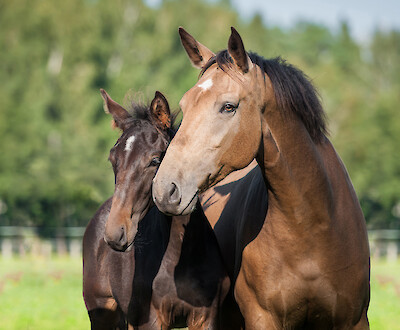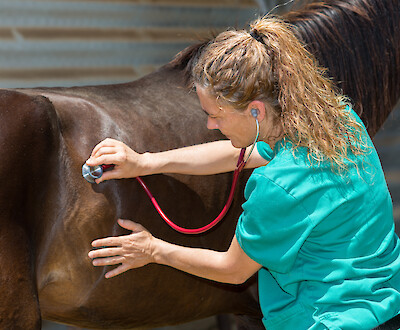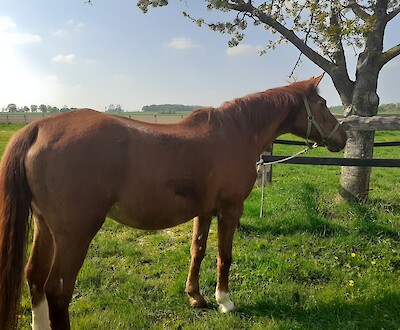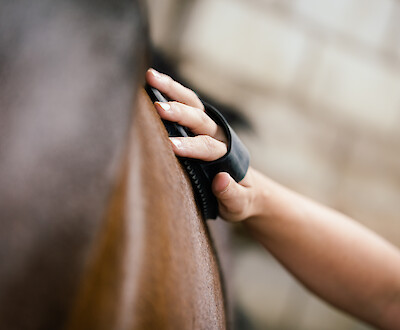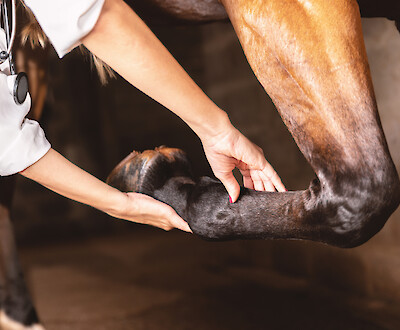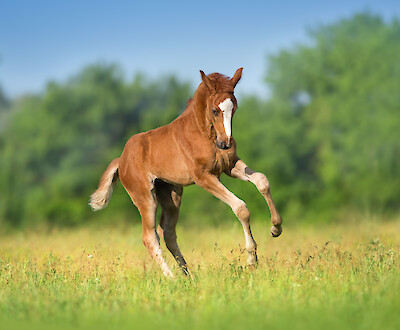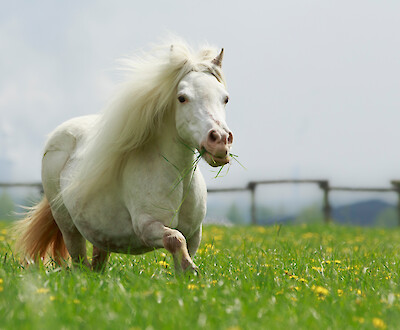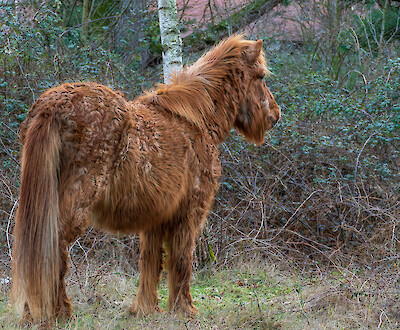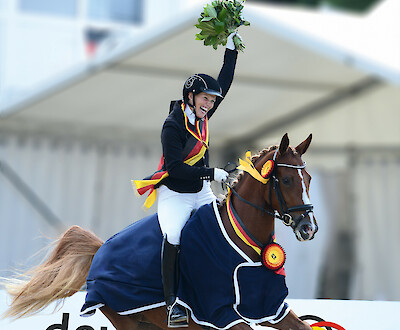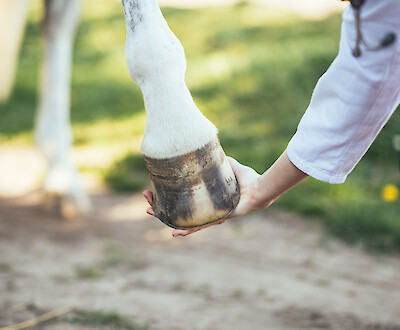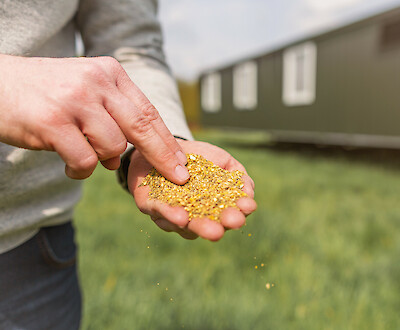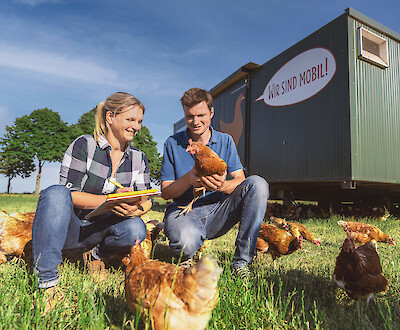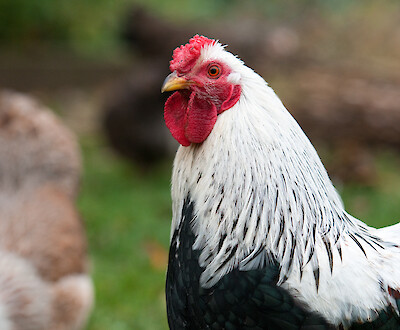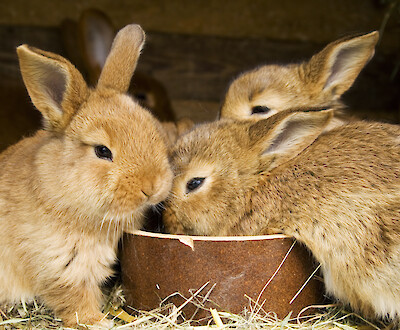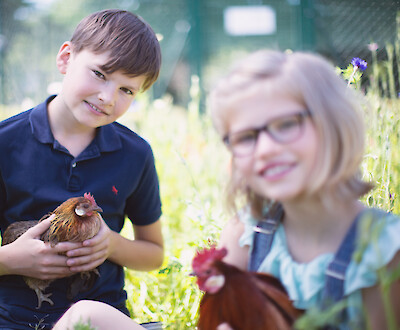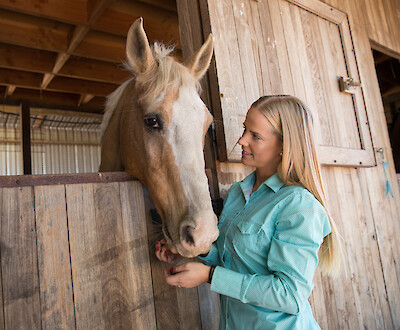This belongs on your rabbit's feeding schedule
Species-appropriate nutrition for rabbits - it's that simple
Feeding rabbits properly is not that difficult. Enough hay, nutrient-rich dry food, sufficient water and grasses, herbs and flowers as desired - that will make your long ears happy. A balanced mix and a seasonal diet are especially important. This will help prevent dental problems and digestive problems. We show you what your rabbits need and how you can easily meet their requirements.
Basic nutrition: this is how your rabbits' digestion works
To feed rabbits properly, you first need to understand how their digestion works. For this, it is worth taking a look at their wild relative: the wild rabbit. Most of the day, wild rabbits are busy foraging and eating herbs, flowers and plants. There is a reason for their appetite: rabbits have a stuffed stomach.
If rabbits do not eat regularly, the food remains in the stomach. But it is in the intestine that the food pulp is digested and the nutrients it contains are absorbed. To keep this process going, rabbits eat between 60 and 90 small meals - every day. The regular feed supply pushes the food mush ahead of itself and thus keeps digestion going.
Rabbits need these nutrients
- Fibre / Crude fibre
Crude fibre is plant fibre. These are the "indigestible" components of the feed in the rabbit's small intestine. The amount and structure of fibre affects how the food mush moves through the gastrointestinal tract and is subsequently digested. Fibres stimulate the intestinal mucosa and promote the growth of beneficial gut bacteria. It contributes to balanced digestion and thus to keeping your rabbit healthy. - Proteins / Protein
Proteins are the most important building blocks in your rabbit's body. They are made up of various components - the so-called amino acids. By ingesting amino acids with their food, rabbits can form proteins themselves. Proteins are very important for the development and growth of muscles, skin, hair, heart and brain . - Fats
Fats are doubly important for your rabbit: they are an important source of energy and provide "fuel" to keep the metabolism going or to stabilise the body temperature. But fats are also important for vitamin absorption. Rabbits - like many other creatures - cannot absorb certain vitamins (e.g. A, D, E and K) without fat. This makes the nutrient vital for keeping your rabbit healthy. - Vitamins
Everyone probably knows about vitamins. They fulfil a multitude of vital tasks in your rabbit's body. Only a regular intake of all vital vitamins ensures the natural function of the heart, nerves, eyes, skin, coat, muscles and immune system. - Minerals
Minerals work deep inside your rabbit's body. Only a sufficient intake in the daily feed ensures strong bones, supports blood formation and ensures the production of important endogenous substances (e.g. enzymes). A particularly important mineral is Calcium. Rabbits need calcium, for example, for the development of robust teeth. However, too much calcium is harmful and promotes the formation of painful urinary gravel.
Calcium is important for your rabbit. Your animals should therefore get this mineral regularly in their food. Too much calcium, however, promotes the formation of painful urinary calculi in your rabbit's bladder. To ensure a supply and at the same time avoid the unpleasant consequences of excessive intake, we recommend dry food for rabbits with calcium formate instead of calcium in its pure form (e. g Nibbler fit, deukanin dwarf food). This is a calcium compound that ensures your rabbit's calcium supply, but at the same time counteracts the formation of urinary semolina.
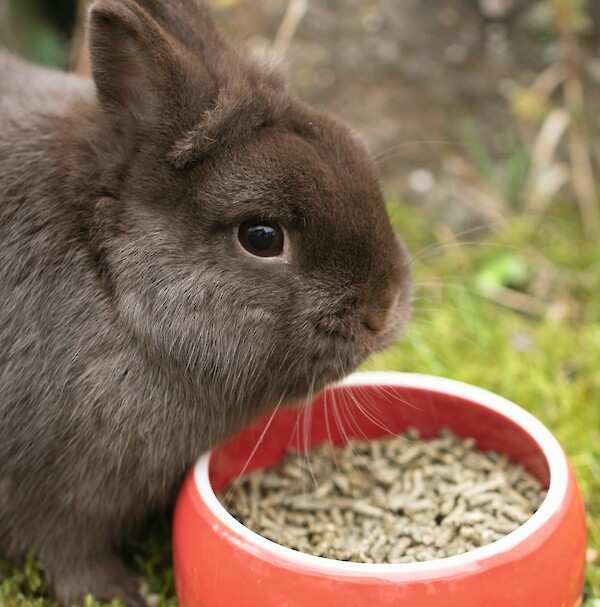
Feeding schedule: What goes in your rabbit's food bowl?
Every living creature has its own individual nutritional needs. Your rabbit is no exception. Only if your little long-eared rabbit gets all the vital vitamins and minerals in its food will it be vital and active. When searching for food, wild rabbits already select suitable grasses, herbs, flowers and leaves - quite intuitively. However, the rabbit at home must eat what you offer it. Therefore, it makes sense to offer your little darling a varied and changing diet. A varied mix of different ingredients and treats is the best way to keep your rabbit fed.
A balanced diet consisting of hay, dry food, water and selected grasses, herbs and flowers is recommended. It is normal that you will need to adjust the feed supply throughout the year. After all, green forage such as grasses, meadow herbs, dandelions and flowers are not available to the same extent in summer and winter. Especially in the darker and colder months, it makes sense to increase the amount of hay and dry food.
Food list for your rabbit for a colourful, balanced diet
- Hay
Hay forms the basis of your rabbit's diet. Offer him the tasty stalks all year round. They can eat as much as they like. You should always offer your rabbit fresh hay. Check the hay rack daily and add fresh hay as needed. Hay is an important source of fibre. Fibre - both digestible and indigestible - supports your rabbit's intestinal function. - Dry food
Dry food is an important source of nutrients in your rabbit's diet. Rodent mueslis or pellets (syn. concentrate) are rich in a variety of different nutrients. These include for example Protein (protein), Crude fibre and energy-rich ingredients such as Fats. In certain life situations, dry food has a special significance: Especially when your rabbits have a high nutrient requirement (e.g. during pregnancy or lactation etc.), the needs of your long ears can usually only be met with a sufficient amount of pellet food and rodent muesli. - Green fodder
Rabbits love fresh food in their bowls. A balanced mixture of different vegetables (e.g. herbs, flowers and grasses) not only brings variety into the bowl. It also provides your rabbit with many vital vitamins. But be careful: you should not offer fresh food for free disposal. If your rabbits are not used to fresh green food, you should only introduce them to it gradually. This will help prevent digestive problems. - Water
Water is the most important nutrient. This is also true for rabbits. Therefore, offer your pets fresh water every day. To prevent thirsty rabbits from spilling water, nipple drinkers and stable bowls are particularly suitable.
The correct feeding times for your rabbits' diet
Once in the morning, once in the afternoon: Check your rabbits' food bowl at least twice a day. Refill with fresh food if necessary. At the same time, check that there is enough hay and enough water.
Your rabbits also need regular exercise. Therefore, turn feeding into an exciting game. For example, distribute small amounts of dry food in the enclosure. Place it on elevated places or hidden in the enclosure. This encourages the animals to move and challenges their grey cells.
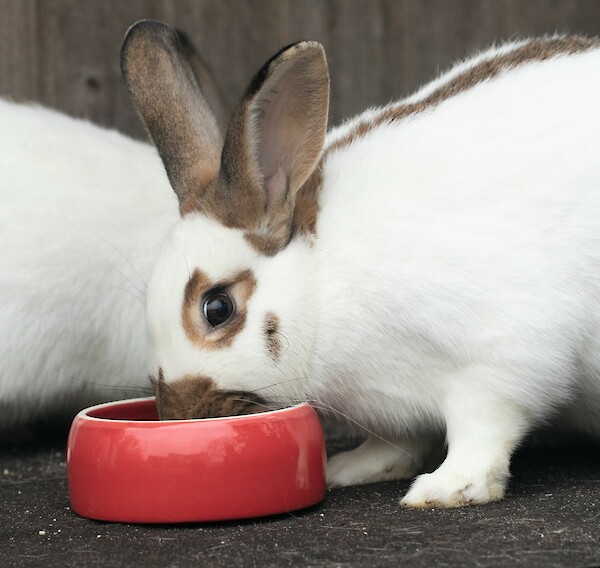
List of the most popular foods for your rabbit's diet
- Hay
- Dry food: Pellet food (e.g Knabbermann fit), rodent mueslis (e.g Knabbermann rodent muesli) or muesli food for rabbits (e.g deukanin nature mix)
- Greens: red clover, garden bamboo, basil, birch, beech, dill, daisies, grasses, hazelnut, cornflower, lovage, lime, dandelion, lemon balm, oregano, parsley, cowslip, marigold, sunflower, thyme
- Vegetables: chicory, lamb's lettuce, lettuce, fennel greens, carrot & carrot greens, parsnip, celery, endive, broccoli, kohlrabi
Watch out: If you feed vegetables, make sure there is variety in the bowl. Too much of one type of vegetable is rarely optimal. Cabbage in excess can cause flatulence, for example. Large quantities of water-rich vegetables (e.g. cucumbers, tomatoes or iceberg lettuce) can cause soft faeces and diarrhoea. Also pay attention to seasonal varieties.
What influence does the food have on your rabbit's teeth?
Rabbits have a strong need to chew. On the one hand, chewing food keeps them busy and calms them down. But chewing also has another practical use: Just as our fingernails grow continuously, rabbits do the same with their teeth. They can grow more than one centimetre per month. If they are not worn down to the same extent, food intake becomes very difficult, injuries can occur in the area of the mouth cavity and the tongue is only able to transport food to a limited extent. Wear and tear is not at all successful with soft vegetables such as lettuce, chicory and celery. This requires food rich in structure in the form of hay or rodent wood. These are ground up intensively by the animals. Rabbits manage over 100 chewing movements per minute. Over the course of the day, this amounts to thousands and thousands. With this, they provide the absolutely necessary abrasion of the teeth.
Feeding your rabbits: the right rabbit food for every age
Are your rabbits expecting kittens? Then you are probably wondering what kind of food they need at the age of 4, 6 or 8 weeks. In the first 3 - 4 weeks you usually don't have to worry about this. During this time they are fed exclusively on their mother's milk. As the young rabbits develop and the milk production of the doe slowly decreases, the switch to solid food begins. This is usually the case from about the 4th week of life. Now it is advisable to start feeding hay and small amounts of dry food.
The digestive tract of the young animals is not yet sufficiently designed for starch in this so-called weaning phase. For this reason, a low-starch dry food is optimal. Make sure that the raw fibre content of the rabbit food is high. The indigestible fibres promote the intestinal flora and thus improve the digestion of the little long ears. A mix of vital vitamins and minerals appropriate to the stage of life rounds off a food for growing rabbits (e.g Nibbler fit).
Feed fresh green food at a later stage and only in small amounts at first. The digestive tract of young rabbits cannot yet digest fresh food well at this time.
Conclusion: species-appropriate nutrition for rabbits
- Rabbits have a stuffed stomach and therefore feed on about 60 to 90 small meals a day.
- Your rabbits need raw fibres, proteins, fats, vitamins and minerals with their diet.
- A balanced diet for a rabbit ideally includes hay, dry food, fresh greens, vegetables and water.
- Check the quantity and quality of the food regularly in the morning and afternoon.
- Slowlyintroduce young rabbits to dry food and vegetables at weaning.
Image sources: © SunKids -stock.adobe.com (top slider)
Contact person

Theresa Oesterwind
Downloads
The diet of your long-eared dog - at a glance
Contact person



